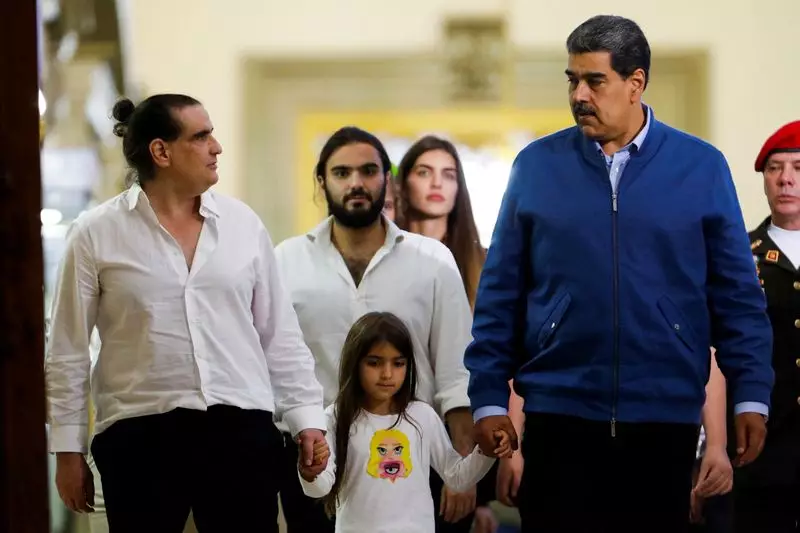Venezuela’s recent release of 30 U.S. and domestic prisoners, including businessman Alex Saab, has presented an opportunity for President Nicolas Maduro to strengthen his political position ahead of next year’s elections, according to analysts. Saab, who had been held in federal jail in Miami since October 2021 on charges of siphoning off $350 million from Venezuela, was granted clemency by U.S. President Joe Biden in exchange for the released prisoners. His return to Caracas was met with a grand reception by Maduro and his wife, which could serve to rally support among Maduro’s party members and demonstrate his commitment to defending his allies.
By welcoming Saab back to Venezuela and showing solidarity with him, Maduro sends a clear message to his party members that he is willing to go to great lengths, even at the expense of resources, to protect them. Luis Vicente Leon, from Caracas consultancy Datanalisis, views this gesture as a demonstration of Maduro’s determination not to abandon his own. However, critics argue that this move will further embolden Maduro and undermine Washington’s stance against corruption in Latin America.
The prisoner release is seen by Maduro as a partial compliance with an agreement with the United States, in which Washington offered relief from sanctions in exchange for free elections in 2024 and the release of unjustly held prisoners. Maduro believes the swap is a significant step towards establishing new diplomatic relations with the United States. Furthermore, the anticipated increase in income from state-run oil company PDVSA is likely to provide the government with additional funding for social spending, enhancing Maduro’s support base ahead of the 2024 vote.
While Maduro views this prisoner exchange as a victory, critics argue that it undermines U.S. credibility in the fight against corruption, particularly in Latin America. Marshall Billingslea, a former assistant secretary of the U.S. Treasury, expressed his concern on social media, stating that Saab’s release sends a disastrous signal to partner nations who cooperated with the U.S. in the belief that justice would be served. The Venezuelan opposition also sees this exchange as a blow to their efforts. The U.S. defense of the move is that President Biden faced a difficult choice and had to offer something that the Venezuelan counterparts actively sought.
While the release of some opposition figures is a positive development, there are still uncertainties regarding Maduro’s compliance with other aspects of the election deal. Three individuals associated with opposition presidential candidate Maria Corina Machado’s campaign are expected to have their arrest warrants withdrawn. However, the campaign declined to comment on this matter. Additionally, Roberto Abdul, who was involved with organizing the opposition’s October primary, has been freed. Nevertheless, analysts argue that further progress is necessary, including the rescission of public office bans against opposition figures like Machado, the announcement of an election date, and other guarantees to ensure free and fair elections.
The prisoner release serves as a critical turning point in Venezuela’s political landscape. As Maduro solidifies his position through demonstrating loyalty to his allies, the opposition must overcome challenges and push for the fulfillment of all aspects of the election deal. The international community will closely monitor developments in Venezuela’s political climate, especially as the country moves forward with preparations for the 2024 elections. The path to free and fair elections rests not only on the release of prisoners but also on the implementation of broader democratic reforms. Only then can Venezuela begin its journey towards political stability and economic recovery.


Leave a Reply